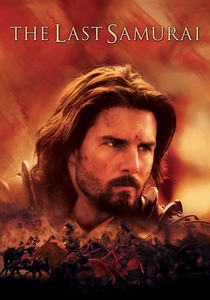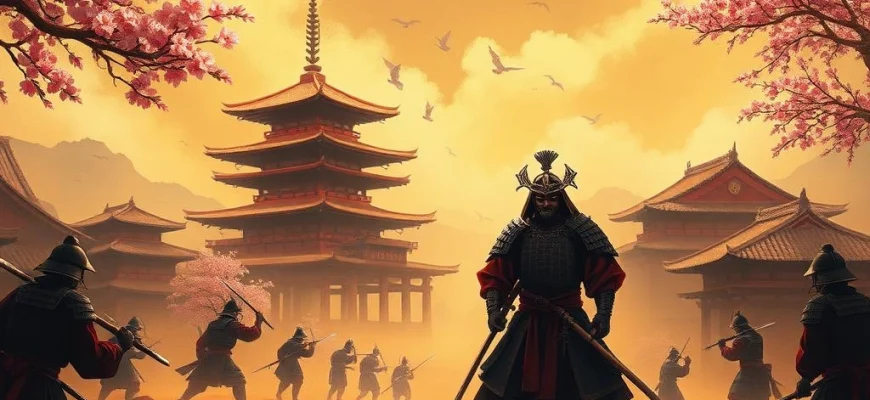If you loved the epic action and rich storytelling of *47 Ronin* (2013), you're in for a treat! This article explores 10 movies and shows that capture the same blend of historical drama, intense battles, and deep honor. Whether you're a fan of samurai tales or just crave thrilling adventures, these recommendations will keep you hooked.

Seven Samurai (1954)
Description: A foundational masterpiece in samurai cinema, depicting a group of warriors defending a village. The narrative explores camaraderie, strategy, and the moral complexities of violence.
Fact: The film was remade in Hollywood as 'The Magnificent Seven.' It took over a year to shoot, with many scenes filmed in harsh weather conditions.
 Watch Now
Watch Now 
Throne of Blood (1957)
Description: A Shakespearean tragedy set in feudal Japan, exploring ambition and betrayal. The atmospheric direction and intense performances create a haunting, visceral experience.
Fact: The film adapts 'Macbeth' into a samurai context. The arrow-filled climax was achieved using real arrows shot by expert archers.
 Watch Now
Watch Now 
The Hidden Fortress (1958)
Description: A thrilling adventure following two peasants who aid a general and a princess. The film combines action, humor, and a quest for survival against overwhelming odds.
Fact: George Lucas cited this movie as a major influence for 'Star Wars.' It was one of the first Japanese films to use widescreen cinematography.
 Watch Now
Watch Now 
Yojimbo (1961)
Description: A lone samurai manipulates two rival gangs in a small town, showcasing themes of cunning and survival. The film blends dark humor with intense action sequences.
Fact: The story was inspired by American Westerns, particularly 'Red Harvest.' It spawned a sequel, 'Sanjuro,' released the following year.
 Watch Now
Watch Now 
Harakiri (1962)
Description: A profound meditation on honor and hypocrisy within the samurai class. The story unfolds through flashbacks, revealing the tragic consequences of rigid codes of conduct.
Fact: The film's director, Masaki Kobayashi, was a pacifist who refused to fight in World War II. It won the Special Jury Prize at the Cannes Film Festival.
 Watch Now
Watch Now 
Sanjuro (1962)
Description: A continuation of the wandering samurai's adventures, focusing on his role in resolving a clan conflict. The film balances wit, tension, and explosive swordplay.
Fact: The final duel is famous for its minimalistic yet highly dramatic execution. It was originally intended to be a more lighthearted companion to 'Yojimbo.'
 Watch Now
Watch Now 
The Tale of Zatoichi (1962)
Description: The story of a blind masseur and swordsman navigating a world of crime and honor. The protagonist's duality—gentle healer and deadly fighter—drives the narrative.
Fact: Zatoichi became a cultural icon, spawning over 25 films and a TV series. The character's cane sword, or 'shikomizue,' is a defining feature.
 Watch Now
Watch Now 
The Sword of Doom (1966)
Description: A dark, psychological journey following a morally ambiguous swordsman. The film's unrelenting violence and existential themes set it apart from traditional samurai tales.
Fact: The abrupt ending was intended to lead into a sequel that was never made. The lead actor, Tatsuya Nakadai, performed many of his own stunts.
 Watch Now
Watch Now 
The Last Samurai (2003)
Description: A historical epic blending action and drama, focusing on samurai culture and honor. The film explores themes of loyalty, sacrifice, and the clash between tradition and modernization.
Fact: Tom Cruise trained extensively in samurai sword techniques for his role. The film was shot in New Zealand and Japan, capturing lush landscapes reminiscent of feudal Japan.
 Watch Now
Watch Now 
13 Assassins (2010)
Description: A gripping tale of revenge and honor, featuring a group of samurai banding together for a final, desperate mission. The film emphasizes meticulous planning and brutal, large-scale battles.
Fact: The climactic battle scene lasts nearly 45 minutes. Director Takashi Miike is known for his versatile filmography, ranging from horror to family-friendly movies.
 Watch Now
Watch Now 








